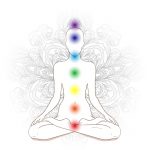The Surprising Truth about Unpleasant Experiences During Meditation
Meditation can be calming, but it can also be disturbing. A recent study confirmed what many practitioners already knew. Mindfulness creates a wide range of experiences.
More than 25% of adults who meditate regularly reported having an unpleasant experience related to their practice, according to research led by the University College London. Fearfulness and distorted emotions and thoughts were more common among men and participants who used a deconstructive approach.
Before you give up your cushion, it may help to compare meditation to therapy. You often feel worse before you make a breakthrough, but the process is still worthwhile.
To put it another way, you have to tear apart your kitchen to renovate it. In the same way, your mind might seem messier temporarily, but you’re still making progress.
Be prepared for the challenges on the path to mindfulness. Take a look at these common mental and physical obstacles to meditation and what to do about them.
Mental Obstacles to Meditation:
1. Adjust your expectations. You may feel disappointed if you heard that meditation makes you blissful, but you’re more agitated than when you started. Remember that mindfulness will shine more light on anything that’s going on in your life.
2. Pace yourself. Many beginners are uncomfortable meditating for more than a few minutes at a time. Brief sessions can be productive, and you’ll probably be more successful if you increase your time gradually.
3. Sample different styles. If contemplating emptiness makes you uneasy, try another method. Focus on your breath or think about loving kindness.
4. Suspend judgements. Some participants in the London study were also troubled by negative repetitive thoughts. Practice looking at your thoughts without assigning blame. Try to reframe situations from a more positive perspective.
5. Examine your values. If meditation is part of your religion, your faith may help you deal with unpleasant experiences. Whatever your beliefs, turn to your personal sources of strength and support.
6. Empathize with yourself. Be gentle with yourself while you’re struggling. Accept your feelings and remember that you deserve to be happy.
Physical Obstacles to Meditation:
1. Sit up straight. Meditation is easier if you practice good posture. Distribute your weight evenly over your sit bones and elongate your spine. Draw your shoulders down and back.
2. Strengthen your core. A firm core will keep you comfortable during meditation and other daily activities. Do exercises like planks and leg raises to tone each muscle. Use your breath to expand and soften your abdomen on each inhalation and contract slightly on each exhalation.
3. Stretch regularly. Training for flexibility will make you more limber. Focus on movements that open up your hips.
4. Move around. Walking meditation is a constructive alternative for anyone who has trouble sitting for too long. Pick a quiet and safe place where you can pace slowly in a circle. If you like walking in a group, invite a friend or check the schedule at a local yoga or meditation studio.
5. Dress in layers. You may feel too hot or cold as your body temperature fluctuates during meditation. Wear a sweater or shawl over a t-shirt or any outfit that will let you make quick adjustments as needed.
6. Eat light. Digesting a heavy meal or listening to your stomach rumble can be distracting. You may want to stop eating a few hours before each meditation session or have a light snack like tea and yogurt.
You may not like what’s lurking in the back of the office refrigerator, but it will smell sweeter when those leftovers are gone. Trust that meditation can bring you peace even when it stirs up unpleasant thoughts and feelings that you need to address.
You may also want to read HOW TO MANAGE EMOTIONAL STRESS AND ANXIETY (click here)
For greater results in your meditation practice we recommend the benefits of using MIND SYNERGY. Find out more here.
This work is licensed under a Creative Commons Attribution-NonCommercial-NoDerivatives 4.0 International License.

 Previous Post
Previous Post Next Post
Next Post



